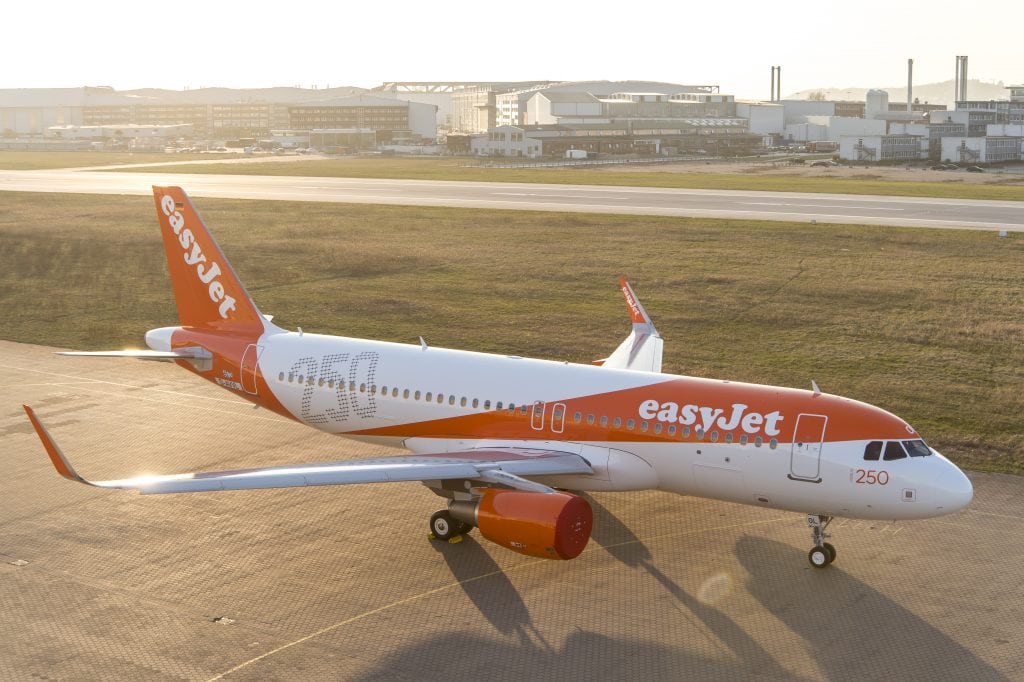EasyJet Hopes Its Plan to Invest in Start-Ups Will Help It Stay Ahead of Competition

Skift Take
In a highly-regulated industry like aviation, moving with the times can sometimes be a lengthy process.
UK airline EasyJet has always been one of the more forward-thinking carriers. It has flown a plane through an artificial volcanic ash cloud to test out a new detection system, experimented with drones and integrated FlightRadar24 into its mobile app to enable customers to track their flight.
Now it is looking to outsiders to help it develop next-generation airline technology.
The company has joined forces with Founders Factory, a start-up accelerator and incubator, co-founded by Brent Hoberman of Lastminute.com fame.
The deal, first reported in The Sunday Times, sees EasyJet taking a direct stake in Founders Factory rather than in the individual businesses themselves. It follows a path of investing in startup funds that airlines including JetBlue and El Al have already pursued.
According to James Millett, EasyJet’s head of digital, it represents an opportunity to both “identify big opportunities and solve organizational problems.”
“This is a five-year relationship… and effectively we invest into Founders Factory. Founders Factory then invests into the start-ups, but that decision-making process is very collaborative,” he says.
The exact terms of the investment have not been revealed but Millett says it is a multi-million pound deal.
EasyJet had been looking into the area for about a year before it landed on the Hoberman project, which he co-founded with Henry Lane-Fox (brother of Martha, the other co-founder of Lastminute.com) and Jim Meyerle, who set-up workplace analytics firm Evolv.
“There was a real synergy in what they [Founders Factory] were trying to do, and what we were already trying to do with relationships with the start-ups. So it just felt like a really strong relationship from the outset,” Millett says.
“I guess the key thing is, it’s not new for EasyJet to work with early stage companies. We’ve kind of been doing that for a long time now and have got loads of examples of that across the business. What this does is just put a bit more formality around it and actually in time potentially give us commercial upside to taking an indirect investment in those companies through Founders Factory.”
A different type of start-up factory
Founders Factory launched earlier this year with Hoberman promising to bring a new model of start-up development.
“There are too many accelerators and incubators. There’s a bubble,” he told The Daily Telegraph. “There are too many people hopping on the bandwagon without adding value.”
EasyJet is one of a number of corporates to come on board with the venture, with others include the publishing giant Guardian Media Group, cosmetics company L’Oreal, and financial services provider Aviva.
The idea is that the bigger companies use the nascent businesses as a form of research and development.
“Over five years, there’s two kinds of investments. One, accelerating companies, we’ll accelerate 25 start-ups to over five years and that’s early stage companies that are kind of up and running, got management teams in place and already going,” says Millett.
The other approach is incubation where EasyJet and Founders Factory effectively build a company from scratch.
In total EasyJet will participate in 25 accelerating projects and 10 incubations.
Growing in a difficult environment
Like the rest of the airline world, EasyJet has found it tough in 2016. Full year results published last week revealed that pre-tax profit fell by 28 percent to $611 million (£495 million).
Terrorism, strikes, and the Brexit vote all contributed to the weaker performance and the gloomy outlook looks set to continue into 2017.
The results announcement did contain some highlights, however, including some in the digital space.
EasyJet is using its customer relationship management platform to develop its own loyalty programme, which it claims is much cheaper to run than similar operations on legacy airlines. During the year there was a 14% uplift in retention and 32% uplift in CSAT (customer satisfaction) among its members.
There was also a 30 percent increase in the amount of app downloads. A total of 20 percent of bookings are now made via mobile and the use of mobile boarding passes increased by 63 percent year on year.
The development of EasyJet’s mobile platform is a key focus for Millett, who spoke to Skift before the company’s full-year results were published.
“We’re very focused on mobile leadership and making things easier for customers. The latest example is an initiative called ‘earlier flight’, so within two to eight hours you can change onto an earlier flight very simply and easily through your mobile phone. We’re seeing eighteen million downloads now, so it’s really becoming that ultimate companion for traveling with EasyJet.
“We see mobile is a big opportunity. Already we’ve seen a really positive response from mobile-orientated companies that want to work with the scale that we’ve got.”
EasyJet’s willingness to try new things perhaps comes stems from its relative youth. It started life in 1995 and, along with rival Ryanair, has done much to break-up the stranglehold of the legacy carriers.
For Millett, staying ahead of the competition in a tough operating environment, means trying something new: “We’re looking at disruptive, innovative travel tech companies. We’re not doing stuff that’s kind of nice, it’s got to be different and it’s got to add value.”




